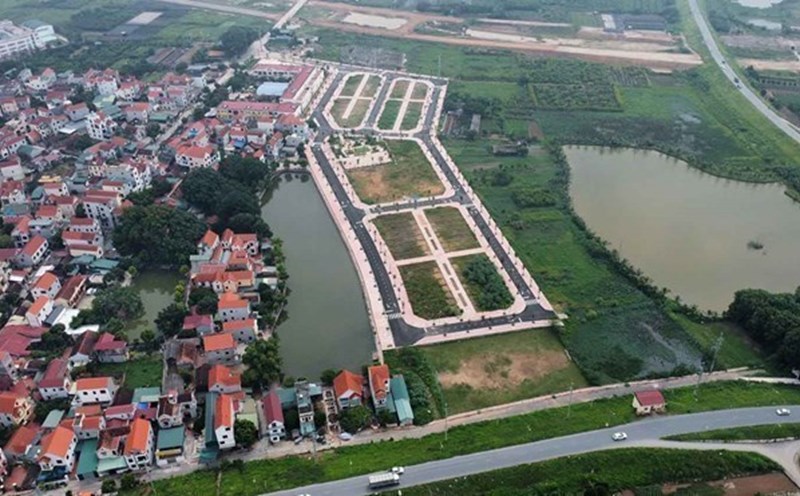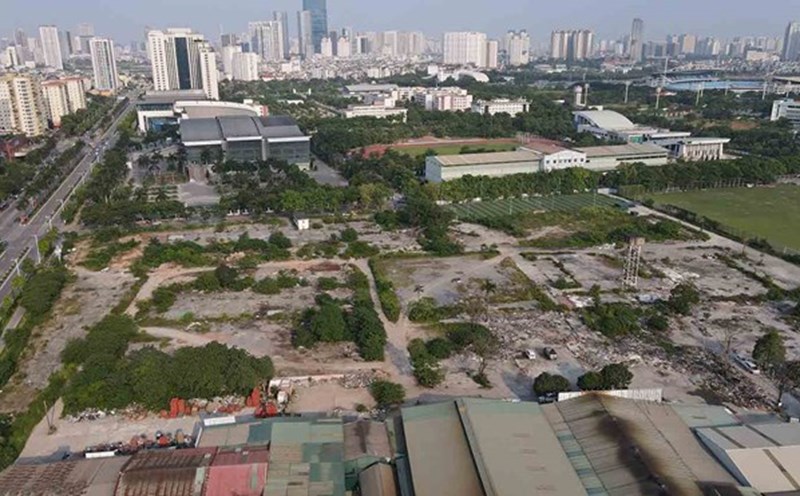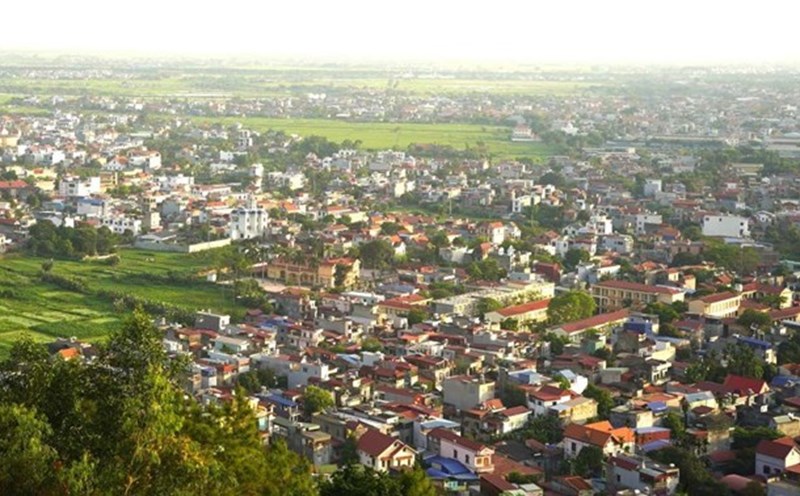The conference took place simultaneously in person and online at more than 3,400 locations of People's Committees of provinces, cities, wards, communes and special zones across the country, with the participation of representatives of the leaders of the Provincial People's Committee, the city and related departments and branches.
Speaking at the opening of the conference, Deputy Minister of Agriculture and Environment Le Minh Ngan emphasized: This is an event of special significance, contributing to realizing the major policies of the Party and State on institutional reform, improving the effectiveness and efficiency of state management in the land sector. In particular, the Conference is a necessary preparation step to synchronously deploy new regulations of the 2024 Land Law, including breakthrough contents on decentralization and delegation of power to local authorities at two levels, provincial and commune levels.
In order to carry out the tasks assigned by the Government, in the past time, the Ministry of Agriculture and Environment has presided over and coordinated with ministries, branches and localities to submit to the Government to issue Decree No. 151/2025/ND-CP dated June 12, 2025 on decentralization and delegation of authority in the land sector. At the same time, the Ministry has also issued Circular No. 23/2025/TT-BNNMT detailing the implementation of the Decree, ensuring consistency, clarity and feasibility in organizing implementation at the local level.
In particular, in order to support grassroots cadres and civil servants in implementing their work, the ministry has developed and issued 48 sets of administrative procedures (in Decision No. 2304/QD-BNNMT dated June 23, 2025) and 10 sets of internal administrative procedures (in Decision No. 2417/QD-BNNMT dated June 28, 2025). These documents are integrated into the Instruction manual and electronic handbook with an intuitive, accessible and searchable illustrative diagram system.
Through the conference, the Ministry of Agriculture and Environment hopes to create a strong change in land management thinking from "replacement" to "authorization and supervision", contributing to improving the quality of service for people and businesses, while ensuring smooth and effective land management in the two-level local government model.
The Deputy Minister believes that the results of the conference will contribute practically to improving the capacity to organize land law enforcement at the grassroots level; ensuring increasingly transparent, effective and synchronous land management from the central to local levels, meeting the requirements of sustainable development of the country in the new period.
At the conference, delegates discussed the contents of the groups of issues on new points of Decree 151/2025/ND-CP regulating the division of authority of local authorities at two levels, decentralization and delegation in the land sector; procedures for registration and issuance of land use right certificates when implementing two-level local governments according to Decree 151; Ministry of administrative procedures for land allocation, land lease, permission to change land use purposes; administrative procedures for compensation, support, resettlement, land recovery for national defense, security, economic and social development for national and public interests; procedures for building and adjusting land price lists; specific land valuation.
At the same time, delegates reflected on the difficulties arising in the implementation of land regulations in the locality and were answered and guided promptly by Deputy Minister Le Minh Ngan and the Department of Land Management, affirming that they will study and propose to supplement the remaining shortcomings in the process of amending and supplementing the Land Law, a key task being implemented by the Ministry.
Based on the opinions exchanged at the conference, Deputy Minister Le Minh Ngan highly appreciated the frank and open-minded spirit of localities when raising many new problems arising in practice, especially the commune level has received many new tasks, new authority with changing procedures, the Ministry of Agriculture and Environment has promptly answered and provided specific instructions.
The Deputy Minister of Agriculture and Environment emphasized that the implementation of the two-level local government model is posing an urgent need in implementation, especially at the commune level, where most of the assigned tasks are directly received and handled. In particular, one of the major challenges at present is the limited capacity to organize implementation at the commune level. The staff lacks experience, while the functions, tasks, and authority are expanding. Therefore, the online training conference held this time is an important first step to unify awareness and enhance skills for the team at the grassroots level.
Todays conference is very necessary, but not enough. This is a regular task, requiring time to absorb, unify and make a real impact on the grassroots team. When cadres have enough awareness, skills, knowledge and understanding of the law, they will confidently implement effectively, Deputy Minister Le Minh Ngan emphasized.
To continue to effectively implement, the Deputy Minister suggested that localities focus on implementing a number of key tasks: First of all, continue to propagate and disseminate legal documents, electronic handbook content, and instruct skills for commune-level cadres. At the same time, it is necessary to invest in upgrading equipment systems for professional work, especially computers, transmission lines, and databases.
Regarding human resources, localities need to review, mobilize or second competent cadres from the provincial level to support the commune level; at the same time, propose to adjust the payroll and restructure the apparatus to comply with the requirements of new decentralization.
One of the urgent tasks emphasized by the deputy minister is to build a land database, serve digital transformation and shorten the time for handling administrative procedures. Currently, the ministry has agreed to use a national software, connected to a national database. Localities need to promptly select appropriate software, organize measurements, prepare cadastral records, and convert data into a synchronous database, to be completed before December 31, 2026.
If we do not build a land database, it will be impossible to implement new requirements in the management and handling of electronic administrative procedures. This is a mandatory task, we need to be determined to implement it synchronously and effectively, avoiding waste, said the Deputy Minister.
Along with that, the ministry will organize specialized training courses, coordinating with specialized universities in August. Each province needs to send core staff to participate in the training, then disseminate and spread knowledge to the locality. In particular, every Monday afternoon, the Department of Land Management will coordinate with the Agriculture and Environment Newspaper to organize online consultation and guidance sessions, connecting with localities to answer problems in implementing land-related procedures such as planning, granting certificates, leasing land, compensation, and resettlement support.
The Deputy Minister also requested the Department of Land Management to promptly complete the electronic handbook, fully update the contents of the conference's responses, and send them to localities before August 6 as a basis for implementation.
In particular, in the context of the Ministry urgently amending the Land Law to submit to the National Assembly in October 2025, localities need to actively participate in giving comments. The Ministry will organize three conferences to collect opinions by region, and at the same time organize a thematic conference with organizations, associations and other affected subjects. Comments should be sent to the Ministry before August 20 to complete the dossier and submit it to the Government.
The adjustment of the National Land Use Plan was also noted by the deputy minister. Localities, especially newly merged provinces, need to review land use needs and report promptly so that the Ministry can complete the adjustment plan, as a basis for adjusting the provincial planning.











